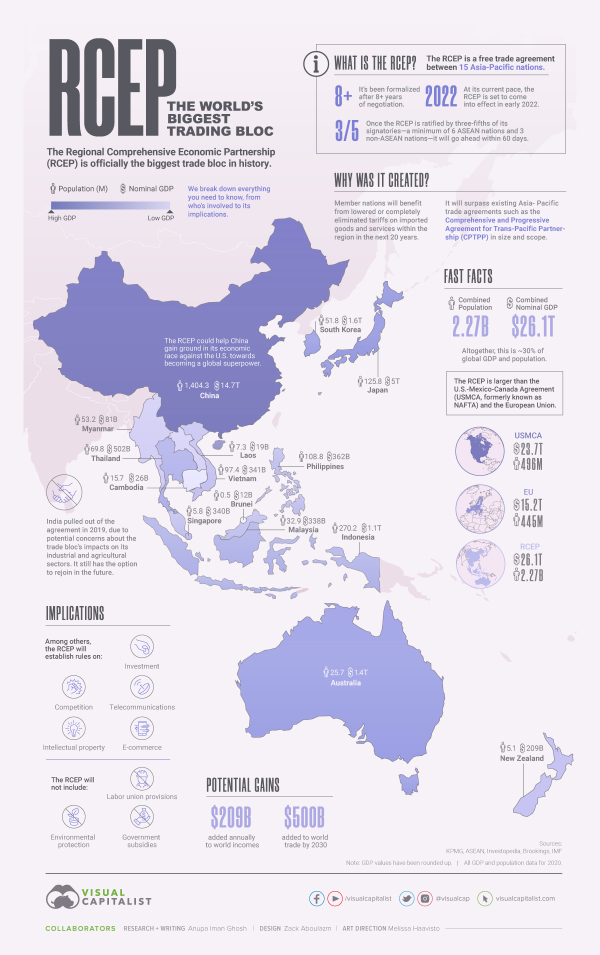The Global Economy is more complex than I could ever explain in a single blog post. But one of the simplest ideas to understand is that trade and commerce are the foundation for the Global Economy.
Trade between states, nations, and continents is how you end up with innovation, global increases in prosperity, and resistance to the consequences of famine, natural disasters, and even pandemics.
But, the wants and power dynamics of these different entities can get complicated. There are many intergovernmental trade barriers.
That's where trade blocs come in … Two you likely recognize would be NAFTA (now USMCA) and the EU.
Trade blocs are meant to reduce trade barriers between participating entities but are sometimes controversial for their potential consequences. For example, they can result in rival groups, overly benefit certain countries, and potentially place undue pressure on certain exports.
In late 2020, the Regional Comprehensive Economic Partnership (RCEP) was signed and creates the largest trade bloc in history – accounting for over 30% of global GDP and population. Visual Capitalist put together an infographic about RCEP's formation and likely implications.
via visualcapitalist
The agreement isn't fully ratified (it is set to be fully launched by early 2022). Regardless, it will impact the global stage and create approximately $209B of income increase per year.
Despite all the rules and benefits that RCEP will have for its 15 nations, it doesn't contain any provisions for labor unions, environmental protection, or government subsidies.
As China continues to race against America to be the largest global superpower, the RCEP is a powerful tool in its arsenal.


Leave a Reply